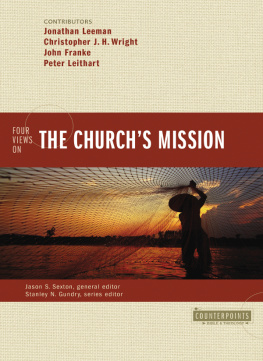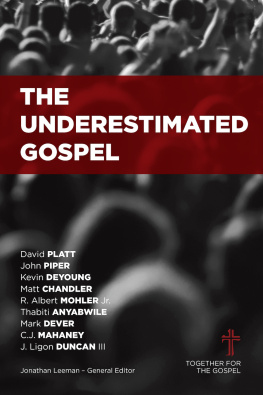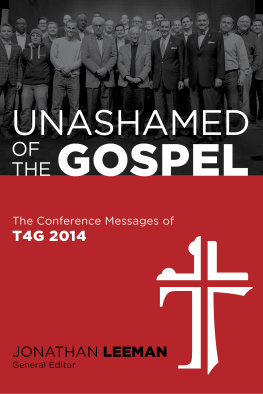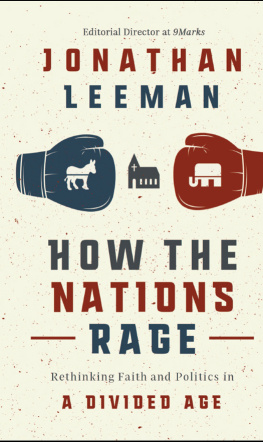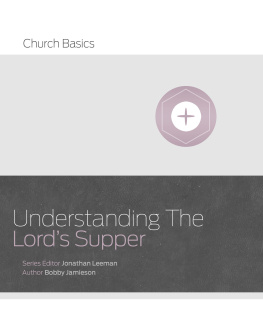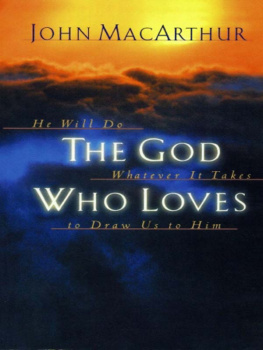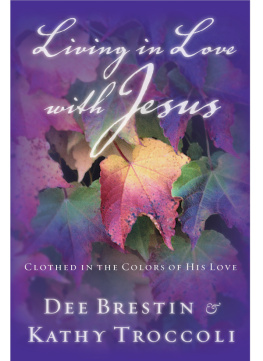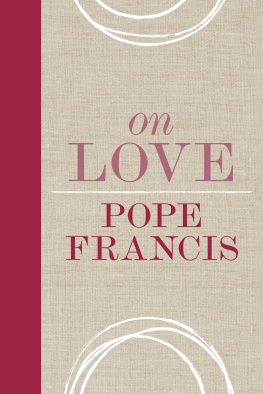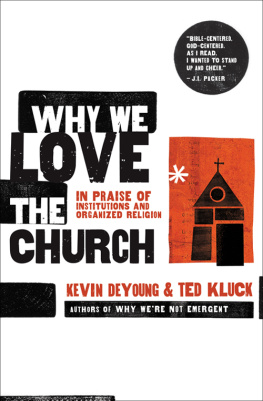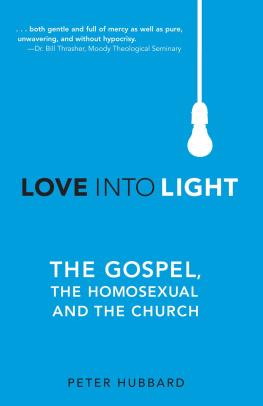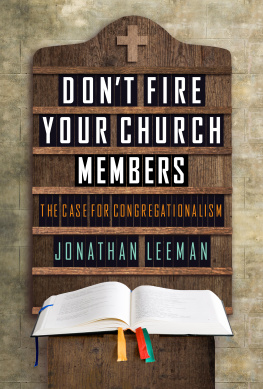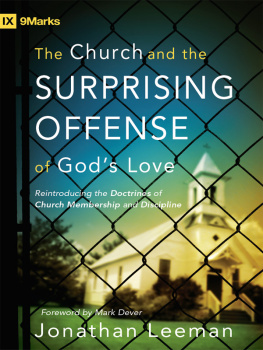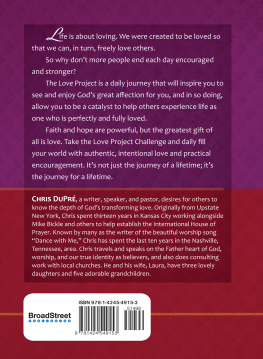Table of Contents
Landmarks
The 9Marks series of books is premised on two basic ideas. First, the local church is far more important to the Christian life than many Christians today perhaps realize.
Second, local churches grow in life and vitality as they organize their lives around Gods Word. God speaks. Churches should listen and follow. Its that simple. When a church listens and follows, it begins to look like the One it is following. It reflects his love and holiness. It displays his glory. A church will look like him as it listens to him.
So our basic message to churches is, dont look to the best business practices or the latest styles; look to God. Start by listening to Gods Word again.
Out of this overall project comes the 9Marks series of books. Some target pastors. Some target church members. Hopefully all will combine careful biblical examination, theological reflection, cultural consideration, corporate application, and even a bit of individual exhortation. The best Christian books are always both theological and practical.
Its our prayer that God will use this volume and the others to help prepare his bride, the church, with radiance and splendor for the day of his coming.
Cormac McCarthys book The Road tells the story of a father and sons love for one another amidst a postapocalyptic world of ash and barrenness. Violent marauders often lurk just around the bend. Almost all of humanity has been decimated, though we never learn how or why. The story simply drops us onto a land of devastation with father and son traveling wearily southward toward the ocean. Then they set out on the blacktop in the gunmetal light, shuffling through the ash, each the others world entire.
The father really is the world entire for the son. The son is too young to remember the world pre -a pocalypse . He knows only what his father tells him, and interprets everything by the interpretations his father gives him.
The father spends the book sorting through old memories, his deceased wife, the boys mother, especially. Yet loving and sustaining the son is now his sole purpose for living. Nothing else is left. All has been stripped away. The boy is his world entire, too. He knew only that the child was his warrant. He said: if he is not the word of G od[,] God never spoke. Helping the son survive, in other words, was the fathers one absolute.
I dont know if The Road would have emotionally registered for me had I read it before having children of my own. I remember looking down at my first child, the first of four daughters, and feeling like my heart, overnight, had grown a new appendage out of my chest. Its different from your love for others because you know the childs existence has come from you. She didnt exist. And now she does. You and your spouse are uniquely responsible for her being. You are her world entire, and that elicits a deep and primal sense of responsibility.
For those who have never had a child, let me offer that the feeling you get when you first behold her or him, before the many inconveniences begin, is one of simultaneous self -f orgetfulness and self -f ulfillment . On the one hand, nothing else (in my experience, at least) produces such an immediate selfless love for another. Its like your joy sensors and fear sensors are no longer inside your body, but operating by radio wave from inside the tiny struggling thing lying on white hospital cloth. You only want whats good for her, what strengthens her, what protects and prospers her. Only a few days earlier, her existence, though inside a womb and real, still felt hypothetical. Yet now you feel certain you would die for this being if called to. And such a decision would seem easy, natural.
On the other hand, you dont vanish into pure nothingness, as with an agap -o nly view of love. The word selfless isnt big enough to capture the love you feel, because the loves power roots in the fact that you see yourself in the child lying there. You dont feel this way for just any child. You feel it for yours . She is an extension of you. She bears your image and likeness. When Adam had lived 130 years, he fathered a son in his own likeness, after his image, and named him Seth (Gen. 5:3). Your very self is extended in the child, affirmed in the child, enlarged in the child.
In short, there is giving and receiving both.
These are not Christian instincts; they are human ones. God has programmed them, in varying measure, into all of us.
Why? Among other things so that we might know something about him. We need to be careful about taking any experience of human love and imposing that on God, but he has named himself Father. He is its archetype (see Eph. 3:1415). You dont finally need children to experience this, of course. Jesus never bore children of the flesh. But parenting is one tool God has hardwired into creation to give humanity a glimpse of his own love for the Son. You might just reflect on your parents love. Or, if they loved you poorly, the hole they left tells you something. Why is there a hole?
Parental love, in a healthy form, doesnt fall neatly into the categories of giving or receiving, as if it were a zero -s um activity: more for you, less for me. Instead, it generates a win -w in : more for you, more for me. As we will consider in a moment, parental love is, in that sense, like Gods love and Gods glory.
A Difficult Doctrine
Yet what well see in both is that Gods love is like a boomerang, to continue the image from the last chapter. It is the original win -w in as his love goes out and circles back.
But first, let me offer an umbrella claim that will cover everything which follows: the nature of love is complex. Parental love is different from romantic love, which is different from friendship love, which is different from love of ice cream. And inside each of these loves is a host of competing dynamics, even love of ice cream. I love ice cream, especially with chunks of brownies or cookies in it, but with some sadness in my heart I admit that its possible to love ice cream too much.
Or we might think about how a husband who begins to stray from a marriage provokes his wifes jealousy, and how that jealousy, in right measure, is appropriate. A prodigal son, however, doesnt provoke the fathers jealousy. Grief, yes, but not jealousy, per se. Romantic love and parental love are different.
In other words, love is not a one -s ize -f its -a ll thing, like a baseball hat with an elastic band. The different structures of different kinds of loving relationships require different ingredients, involve different duties, and produce different demands.
- The peculiar love shared between the divine Father and Son : The Father loves the Son and has given all things into his hand (John 3:35); I do as the Father has commanded me, so that the world may know that I love the Father (John 14:31).
- Gods providential love over creation : the word love is not used in this connection, but he pronounces everything he has made as good (Gen. 1:431) and promises to send rain on the just and unjust alike (Matt. 5:45).
- Gods salvific love toward the fallen world : For God so loved the world, that he gave his only Son, that whoever believes in him should not perish but have eternal life (John 3:16).
- Gods particular and elective love toward a chosen people : As it is written, Jacob I loved, but Esau I hated (Rom. 9:13).
- Gods conditional love toward his people based on obedience : Keep yourselves in the love of God (Jude 21). If you keep my commandments, you will abide in my love (John 15:10).
Amid all this complexity, however, I maintain that there is a way to put it all together theologicallyto sum it up, to systematize it in a concise definition. And what we learned in the last chapter from theologians like Augustine, Bernard, and Aquinas points us in the right direction by pointing to the God -c enteredness of Gods love. Im not going to trace out all five of Carsons categories one by one, but in this chapter and the next two I will try to account for each, and then conclude chapter 5 with a definition.


